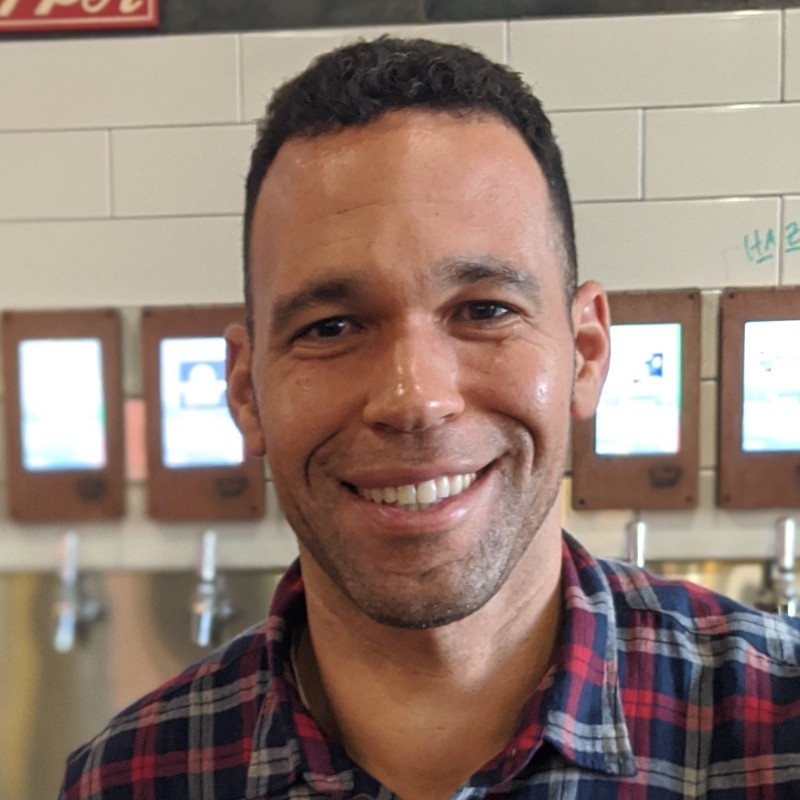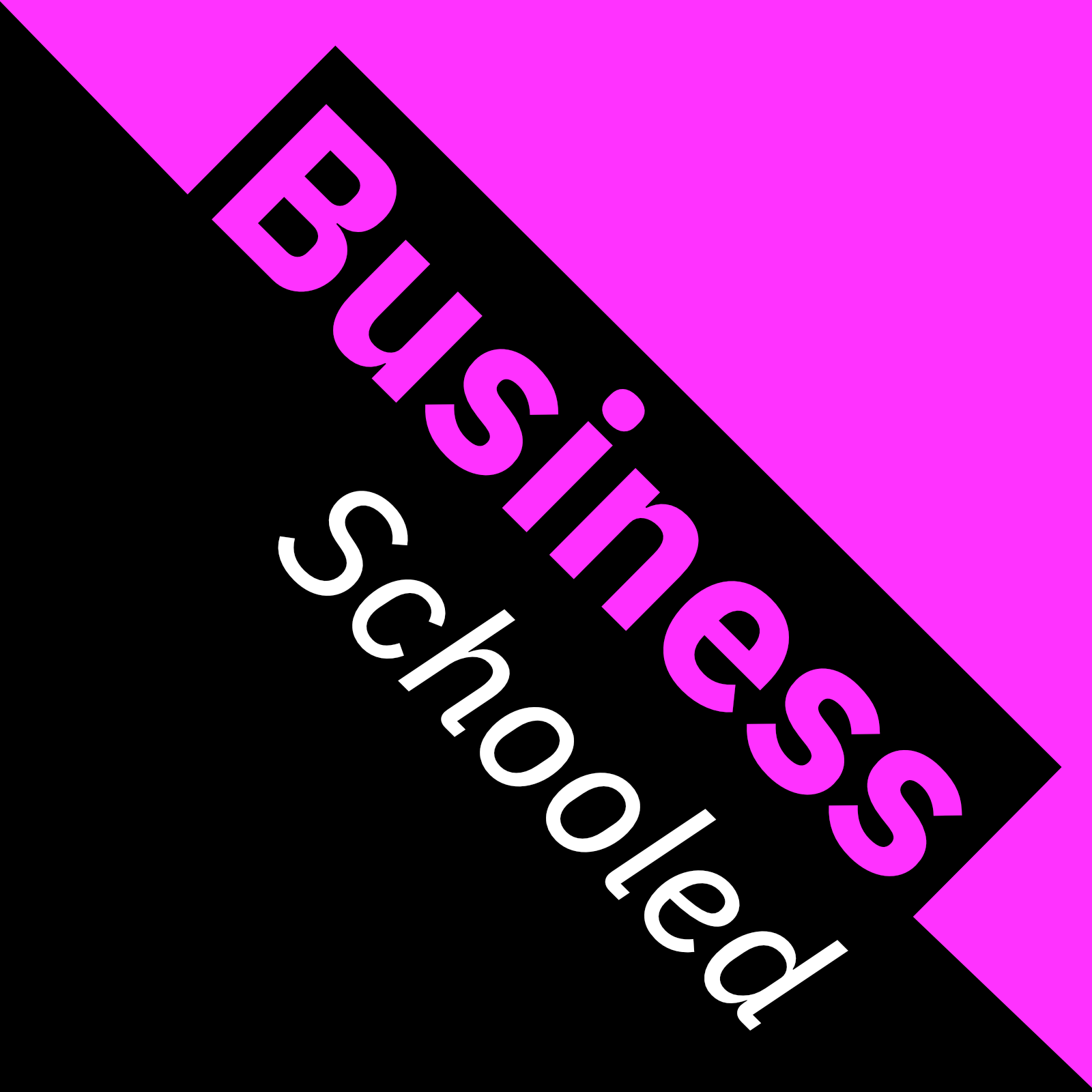Building AI business skills with University of Miami's Liam Anderson
- 0.5
- 1
- 1.25
- 1.5
- 1.75
- 2
Speaker 1: Business Schooled.
Speaker 2: Business Schooled.
Daryl Pereira: Hi there. Welcome everybody. This is the Business Schooled podcast, where we talk about emerging trends and topics, and things that you may not find in a business textbook. My name's Daryl Pereira. I am a brand and content strategist at IBM. Really happy today, to be joined by Liam Anderson, from University of Miami. Liam, thanks for joining us today. And just to kick things off, ask you just tell us a little bit about who you are, and how you got to where you are today.
Liam Anderson: Today, aspirationally, I think of myself as disrupting higher ed from the inside, right? I do like to employ technology and innovation in higher education, which I've been in for about 12 years, and right now, focusing on experiential learning programs at University of Miami. It was a new position, and it's something that a lot of universities, I think, are adopting more and more, and trying to make sure students are prepared for the real world of work and society, and technology, and acknowledging that the stage- on- stage model and regurgitation test is not, maybe, the best approach. I'm here just to make things more real and innovative for the students within the structure of an academic program, which is always a challenge. A little bit about my background, also, I've worked in higher ed for about 12 years. Before that, I also worked in corporate law as a paralegal and financial services marketing, and traveled a lot, 60 countries, lived in five other countries, just studying or working. I'm very global, and I always put that lens on everything that we do here. And I'm also doing my DBA, which is like a PhD for working professionals who don't want to be in a career path of research, to help connect that research component around sustainability, and B Corps, to a lot of the work in experiential learning. It's an interesting sweet spot that I hope to develop more.
Daryl Pereira: Great. And I had the opportunity of doing some work with the University of Miami and the business school there. One thing that struck me is just been openness of the business students. We're going to talk a little bit about AI and some of that topic, but we can definitely talk about other emerging trends. In some ways, there's a lot happening in this space. There's not a lot of definition around what you do, what the tools are, et cetera, how they best fit in terms of... Especially in the educational space, but also in that business context. I'll say for myself, I've been really impressed by the degree to which the students, their University of Miami have jumped on these projects, and have shown a willingness to, effectively, explore, and tread new ground. There's not a lot of Harvard Business Review case studies, or Harvard business case studies, written in this area. And there's not a lot of textbooks. But I've been particularly struck with how open and receptive your students have been to innovation and what's going on around them. Would you say there's anything in terms of... Guessing that's partly by design, that's not purely by accident? And how do you think about that, and in terms of keeping up with innovation in the educational space?
Liam Anderson: Yeah, to the point about the willingness to experiment, partially, definitely, a result of... Our dean is very... Our former dean, right? He's left, but the one who created this position and said, " Experiential learning, very important. The students are going to do better in their career path if they have more of those real world experiences." And also, looking at Miami, as a region and geography, it is going through some kind of renaissance now. It has a reputation for new things being experimented with. It marches to a different inaudible, I think, than a lot of other parts of the US, so there's definitely a willingness here, among the school, and I think, the students, and being in this vibrant place to experiment. And of course, tech is part of that, right? And AI and crypto had a big run here. And now, there's a crypto winter, but we'll see. But anyways. Specifically in this class, I'm with these students, saying that, " We're not trying to hide or block you from using technology. And the only way you're going to get the most out of these experiential learning projects, and whatever simulations, is to embrace it and use it, and probably, of course, fail with it, and test it out, and see what works and what doesn't work." And I think the students have been really open to it. And there's all kinds of conferences that talk... Crypto conferences. There's definitely a lot of interest in getting more people to come here to talk about the technology industry, because we don't have a big representation share. We had a woman in tech panel a couple of weeks ago, which was great. And it's just creating that environment, and putting structure around that environment of using technology and AI in the higher edge space. And then, just getting students understanding, what does it mean to use these, and what is the nomenclature and, I want to say, the jargon, what is the way that students can explore without really being a techie. Because I think there's misconceptions, like, " Oh, I'm not an engineer. I'm not a techie. I didn't grow up in the Bay Area. I don't know what tech is." No, there's so many things that you can come out of completely different background, be introduced to an AI tool, connect it with you, or understanding of something, and then just go off very quickly, in a new direction.
Daryl Pereira: Definitely this idea that... Trying to break this idea that everybody in technology needs to have a computer science background or anything along those lines. And I see a lot of opportunities. And it feels like, even, like you mentioned, with the emergence of new technology, especially with AI, that it does open up potential as well, even further, than in the past, whether... Yeah. There's so many areas. It's business, really, at one level technology, so that gives you sales, that gives you marketing, finance, so many different areas that go beyond, just purely being able to, say, build technology and understand coding. Obviously, it's tough to talk about emerging technology without talking about AI and what's going on in that space, so let's... If we spend a bit of time there. What do you see in terms of what's happening in the AI market? And what does that mean for students, good and bad?
Liam Anderson: Of course. ChatGPT just exploding onto the scene about a year and change ago, or something around there. And then, just being a lot of... The extreme growth that it had in terms of active users, and then the other products coming apart. And now, these different evolutions with different, more sophisticated tools that just are built on top of it, and can create very specific types of creative content, it makes creativity, and it makes content creation really easy, like scarily easy. It's cheesy, but with that power, comes responsibility, right? So there's the need to be critical thinking. Part of our three programs, obviously, has to have a lens with anything created, or use with AI tools. Does it make sense? Is the data accurate? Are the sources there ethically? Does it make sense to, maybe, use... If you're talking about images, right? Thinking about how the images... What feelings they might convey for the audience if we're doing a presentation or some kind of external marketing brochure that we use in some of these projects, right? So, students creating mock products for market, if that's part of their objective, that their client gave them, is create a mock, new type of smart water drink. And then, they do that, and they look at designs and everything. And they can iterate a lot using AI, create output tools, to create different images based on different types of emotions. There's always something that... It might not really work as an actual physical product, and that... Okay. Can they take... Kind of created, then make it something from that? But then, I guess, there's kind of a limit in terms of how far they can go once they're using output from AI. If it's not created from scratch, there's a limit there, right? So it's good for inspirational tools, but maybe not to create some kind of finished products that they can actually introduce, which I think is interesting. And then, there's all kinds of other tools. For myself, as I said, I'm still doing my doctoral degree, finishing up my dissertation. And as a lifelong learner and doctoral student, there's all kinds of tools that help with research degrees, like literature stream, maps, where you can map out, visually, an entire literature stream of a topic, like CSR, and see what are the main seminal research areas, and the branch- off ones, and see, almost like a family tree, what it looks like. And that really helps when you're doing a literature review for a dissertation, create a narrative around, where did this topic start, how has it evolved? And then, using things like... I forgot the name, but it's like an instant CliffNotes of research papers. It gives you a snap summary of a very long, boring academic paper with lots of data that you don't really care about. And it can summarize it, just like that, right, saving you, maybe, hours of time scanning it. Two very different student issues, but both very changed and elevated by AI, but also made more complicated at the same time.
Daryl Pereira: There is this concept within the market that... Obviously, there's a lot of discussion around jobs, skills, that area, especially around AI. I know there's, certainly, this discussion around the idea that a human plus these tools is much more effective than a human on its own, and then just the tools on its own. And it feels like, what you're saying there, especially that example for research, and the degree at which business research, where you might be looking at CSO... What's been written around corporate social responsibility within organizations, even things like that seems like a great example of how you could, effectively, think of it as a tool that can let you do things that you couldn't do before. Maybe the way that a power drill is so much more effective than trying to drive a nail into a wall with a hammer, for instance. Is that what you see? Is that something in terms of... Where you think in terms of, also, students and how they can make the most of these tools?
Liam Anderson: Yeah, absolutely. They're super powerful tools. I think that we've just grasped the surface of them. There's definitely, I think, training. There's experimentation and training. I don't think there's any formal training yet, around how students can, maybe, use these tools effectively. We encourage the experimentation, point out where... Oh, yeah. You used it to create a resume, but it got some data wrong in your history, because we have your original resume here, so it might've created falsified data or misunderstood data, or misunderstood something in your resume, if they're just trying to match it to a job description. That's a huge thing, putting your resume in an AI tool, saying... Putting a job description and saying, " What kind of resume would be needed?" Or" What kind of skills would be needed for this job?" That's huge. That makes finding your fit in the job market much easier. But again, the students have this very challenging market. They need to get past the ATS tracking mechanism. They're looking for work. And that is meant to keep people out, and keep them from decision makers. But those people, again, who see the resume at the end, whether it was created by AI or not, that students need to have to stand out some way, where their voice comes out, their experiences come out, how they add value can come out. Just like people working with students using these tools, I'm sure hiring managers can spot when something has been built up using generative AI. I think they're good at that, and they're going to take that opportunity to call out any applicant, saying, " What is this experience? Explain more." And you always have to have a backup. You have to explain it in real time, during an interview. And that's the point of the experiential learning, is to give them that ability to pivot and adapt, no matter how great their marketing materials look, their personal marketing materials, to be able to inject it with something that says, " I suffered through this 500- hour project, and I interviewed 10 different suppliers to help my client get a foothold in the US, for their product coming from Chile or whatever." And that is something that no AI can write about, but I can tell you the story. Because it's not anywhere on the internet, it's just in my head, and this is what I experienced.
Daryl Pereira: I think it's a really interesting point, this idea as well, as you're saying, that, maybe, whether you are a educator grading papers, or whether you're a hiring manager looking at resume, as this technology is increasingly used, you get to notice... As an individual, you may think, " Oh, this is great. I've just got this thing just to write my paper, and now submit it." Because that bar is low, and because... If a percentage of people go and do that thing, then the person that's looking at it will see those patterns. So it becomes increasingly important to think about how you, as an individual, can stand out, even if you are using these tools, how you can make the most of them. You touched on this idea of experiential learning, and that feels like, that potential, like you're saying, that's an area that... If a business student has been embedded into business, and has had that real life experience, that's not something that you can, really, get an AI to replicate or to reproduce. In terms of how you deal with that... How do you think of that in terms of making that point? Maybe give some examples as well, of the kind of experiential learning. And where do you think this could lead? Do you think this will become more important as time goes on?
Liam Anderson: Yeah. Prior to this role, I worked in some workforce development programs that are... It's kind of halfway between a degree and a bootcamp, where they take, obviously, very bright students who maybe don't have the financial means, don't come from the right backgrounds to be able to afford a full four- year degree, or a two- year master's degree, and put them in through a very condensed soft skills and hard skills training program, to put them on a route to get a living wage job at a company, large or small, that can lead into, potentially, a management job. And maybe they go back to school later on, whatever, but it gets them on that track. And those programs are super experiential. They're not only high touch in terms of coaching and the mentorship that goes into working with these students who are very bright and very motivated, they've got hustle. And that's something that is absolutely required, is you got to have hustle, and you got to drive and desire to be in the job market, and to put your best foot forward. When they're rough around the edges, having that instant feedback is really important. And you only get that through those in- person coaching, mentorship sessions. I think those are super important. Those students that are benefiting from those environments, whether it's in the university or in a workforce development program, will have that leg up, because they get that instant reflection instead of, maybe, writing a reflection paper, which is important to think back. Having that instant course correction, I think, makes you very, very aware of yourself, and maybe your strengths and your limitations. And when you're in an interview, that helps a lot to be able to read people. Emotional intelligence comes in here. How is somebody reacting to something you say? People make judgements on you in the first what? Probably less than five seconds. And then, just being able to pivot. You say something, you see someone's facial expression. I think, in the future, maybe AI will be doing this for us with headsets, but now, it still takes that emotional intelligence, that human aspect, and the ability to read the room, to be able to stand out, and to make an impression on an employer, manager, a client. Yeah. I think those things don't go away, but I think AI, eventually, will democratize, almost, those things. I think it'll be able to help people act more human when we get to those kind of wearable tools that can actually help them in real time.
Daryl Pereira: Interestingly, touch on soft skills as well, and that's something that we cover quite a lot on this podcast. But sometimes, those are, maybe, less easy to define, codify, and to, rarely, spell out. But based on what you're saying, the way you think of something, like, for instance, as I think you alluded to this earlier, this idea of critical thinking as a... How you can look at these tools, and how you'll be able to look at the output from a tool, and think about... " Okay. This is okay. It's got some of it. Maybe it's missing... It doesn't have the personality that I thought it should have," or" It doesn't have these pieces." Do you think these tools can, in some ways, enhance some of the soft skills in business, I guess? Either can help students develop those, or also can be a case for... The need for those. If all the baseline stuff is covered, the degree to which... If you're using it to write your resume, and some of those aspects, as many other students may be, or many other applicants might be, then you feel like that some of these other areas become more important. Is that the case?
Liam Anderson: That's a hard question. I think we're just understanding that too, is how these AI tools are changing the way students interact and communicate, maybe nonverbal as well, as verbal, and just thinking too, of this new device, the wearable... What is it called, AI PIN or something? If something like that takes off, and there is a retreat from handheld phones, will students then be more aware? Because right now, I feel they're not very aware in a classroom. Everybody will be on a laptop when the teacher is talking, or looking on their phone. You don't get a presence. You don't get a feeling of presence in a lot of these classrooms or situations, where, maybe, there's a speaker, a presentation. And of course, the speakers notice that, the professors notice that, the company presenting notices that. They usually see that as rude. And I think that is being communicated to students, that, phones down, laptops down, you need to be present. These are good soft skills, eye contact, active listening, like showing somebody that you are listening. Those, of course, seem to have gone down also, with the pandemic and the switch to virtual. I think that even made them go down even more. Because we do see students coming, who... We call them pandemic generation, or COVID generation. Probably not a great label, but they don't really function well in real world, in- person environments. They're okay with Zoom, once they have their camera on, anyways, different story, but they struggle in real world environments, especially job interviews, and especially just meeting people that they're not familiar with. Having some technology... I'm thinking now, AI tools, which have, maybe, some, again, physical, real world, whether it's augmented reality, or something that helps them be more present, I feel like this is coming, because employers are demanding better soft skills. Leaders have to be good at communicating. You can't be a good leader just looking at your phone, or using your laptop. I feel like the market will create tools that will help students do that.
Daryl Pereira: No, that's fascinating, that these tools can play a role in helping to build those soft skills as well. From the IBM side, we have a platform. Our generative AI platform is watsonx, and one of the key use cases is around customer service, and that side of the world. Again, it's an area that has a lot of communication, nuance, so it goes a lot more beyond just answering a question. And I think that's where we're seeing a lot of the movement in terms of... Where we've had chatbots in the past, but they've tended to be more question- answer- based. Whereas now, the tools seem to be getting better, and we're seeing a lot of developments happening around things, like, " Okay." Even if it could just be pure text- based system, it can start to detect, and be more accurate at detecting, when there's levels of frustration and things like that, where then... Okay, AI is not working here. Time to hand it over to, maybe, second- line support, which can be a human, to jump in. But it feels like, yeah, where we see AI used for... Around things like, even, mental health and some of those areas, maybe by extension, there could be areas in which it can help facilitate some... As you're pointing out, a very important soft skill, which is communication. You may have the best ideas in the world. A big part of business is how you can get those ideas out, and get others along with your ideas.
Liam Anderson: Yeah. And having that charisma, I think, that's something that is... And there's all kinds of studies in leadership that say that stuff can be taught, it's not only inherent. I think there's definitely inherent traits that make people better leaders, but I think good leadership can be taught, and reading books like How to Win Friends and Influence People... Very classic books like that, which are still very important today, 100 years later after it was originally written, which is shocking. But that's still useful and recommended by leadership trainers.
Daryl Pereira: Thanks, Liam. As you're explaining, there's areas like experiential learning, which become more important as we see emergence of tools like AI. What's going on in the world of experiential learning that you see? There's some interesting developments there.
Liam Anderson: Here, we're doing these capstone projects, which focus on business and corporate strategy, creating a new marketing strategy, or creating a market entry strategy for a foreign company. And then, there's other areas where they are focusing on sustainability. And we have an opportunity to look at how companies, especially small businesses, can, while they're still working on scaling and growing, and understanding their audience, at the same time, become comprehensively sustainable, and focusing on topics like shared value, and making sure whatever they're doing is under the umbrella of the sustainable development goals, and then the B Corp movement. B corporation movement, of course, is one of those areas where there's a lot of companies seeing that... If they start with, while they're still young, putting sustainability and social impact into their value chain, looks at everything from the community, the context around the company, the workers who are there, how are they treated, the customers, or the services, and the quality of product and support. And also, the governance is the fourth bucket. And then finally, the environment is the fifth bucket. It looks, very holistically, inaudible... The ecosystem around the company. And then, the company goes through a very comprehensive audit, where it looks under the cover and says, " How are you treating these suppliers? What are your scope or missions from all of these different activities? How are your workers doing? Are your operations having any negative impacts on your surrounding community?" Through this audit, it makes sure that not only are they doing good to all these stakeholder groups, stakeholder capitalism, but they're on a path to continuously improve in all these areas. It's a multi- industry, so any industry can become part of this B Corp community once they go through the audit process and reach the score, right? It's a scored process. Experiential lane comes in because there's a lot of companies who want to come to these B Corps, and they want to join this community, which is now global. And it's like 7, 000 companies global, maybe about 3, 000 and change in the US. There's a demand, but there's not as much understanding about how can a company become this, right? How can it be a B Corp? The students have been forming consulting teams under different mentors from either current B Corp owners and faculty who are sympathetic and know about the cause, and are also studying it, maybe like I am, and then creating these projects where the students learn about the audit. And also, they become more knowledgeable in general, about the SDGs, and the bigger context of CSR and ESG. And then, they help the companies through a structured consulting project, become capable of reaching the threshold in order to become a B Corp. Companies, they'll have different priorities depending on industry. One might want to focus on greening their supply chain, one might want to focus on making their products circular, so it really is flexible. The company can say, " Hey, we want to get more research on the circular economy product." And the students come in and say, " Okay, this is our target." They look through the value chain, so they really can work with the company and understand the business. It helps the students understand the business. And then, some of the things that need to change, in the value chain, for a company to meet these sustainability goals, and be able to pass the certification. The goal, of course, is they get certified as a B Corp, the students get great real world experience, maybe they get a job, or at least it helps them, indirectly, be more employable. It is very much a win- win from that perspective. And this is something that's been growing organically at different universities. I just attended a training yesterday, meeting a lot of the faculty and business owners that are part of this committee, and just trying to get it to grow. We're, hopefully, going to bring something, like this B Corp... It's called B Impact Teams, type of project capstone to university, and hopefully, be able to contribute to this kind of growing movement. Because, B Corps, they're all over the country and the world, and there is a demand, because companies know that it's important. Business Roundtable Proclamation, in 2019, talked about it. Everything from Fortune 500 to small businesses, even startups, one, two or three people, it's something that they're thinking about. This is a roadway for them to get onto that sustainability path early, and comprehensively. Hopefully, that'll come in the future.
Daryl Pereira: You've got a depth of experience looking at emerging technology, especially from the academic side. Do you see certain things that are happening in this space? We tend to look quite specifically at AI, but are the ways in which you think that these things can be, maybe, extrapolated out? Either in terms of how this is unfolding, or in terms of how we use these tools, is there something there, that is... Any kind of universals or patterns, and processes that you'd recommend?
Liam Anderson: There's no silver bullet that's going to do it for them. It's going to take experimentation. Because I got to put a global lens on everything, I'm always thinking of everything in terms of what do people in France do, and in Vietnam, in Brazil? How are those cultures successful at what they do? A lot of them have great entrepreneurs who are very scrappy in the way they are able to get things done. And I feel like sometimes, there's so much to learn, just from going abroad, and talking to a small business owner who runs a pop- up shop or a street food cart. Because they have all these little hacks, to be able to make their business work, in the context that it does, and they pivot. Now, they're all using digital payment tools. They're not taking cash, so everybody tapping their phone. And they're one of the first businesses to use that, right? Being able to just be... Seeing what works for you, whether you're a student or a young business owner, what is your pain point in your day- to- day? And what is that kind of tool... Again, technology is supposed to help us find solutions. What is that solution? And what is the technology that can help me make that solution to make my life, or my job search, or my" Starting a business" process so much easier and smoother? I think it's thinking, working backwards, from the solution perspective, than just, " Oh, here's a new tool." Because there's so many. And I don't think any of us can really parse them in an effective way. You just got to, I think, reverse engineer. How does this help my life? And I look for those things.
Daryl Pereira: Appreciate you taking the time. It's Liam Anderson from the University of Miami, heavily involved with the business school programs, especially as it relates to experiential learning and helping students, preparing students for their careers, this next generation of leaders. Appreciate all of you. Thanks for listening. This is The Business Schooled podcast. We cover some of the latest and emerging trends in technology. Subscribe to keep up, and to hear more conversations like this. My name's Daryl Pereira. Thank you for listening.
DESCRIPTION
There is always space for disruption in higher education. So says Liam Anderson, Director of Experiential Learning at University of Miami. Beyond giving students access to real-world business experience, technology also has a role to play, and not least artificial intelligence (AI). Students at University of Miami very open to experimenting with new technology and innovations like AI, as the local culture is all about embracing new ideas.
Your host: Daryl Pereira, IBM Senior Content Strategist
Key topics:
- The importance of experiential learning for students
- The benefits and pitfalls of AI in education
- Examples of experiential learning around sustainability
Learn more about the University of Miami Herbert Business School
Today's Host
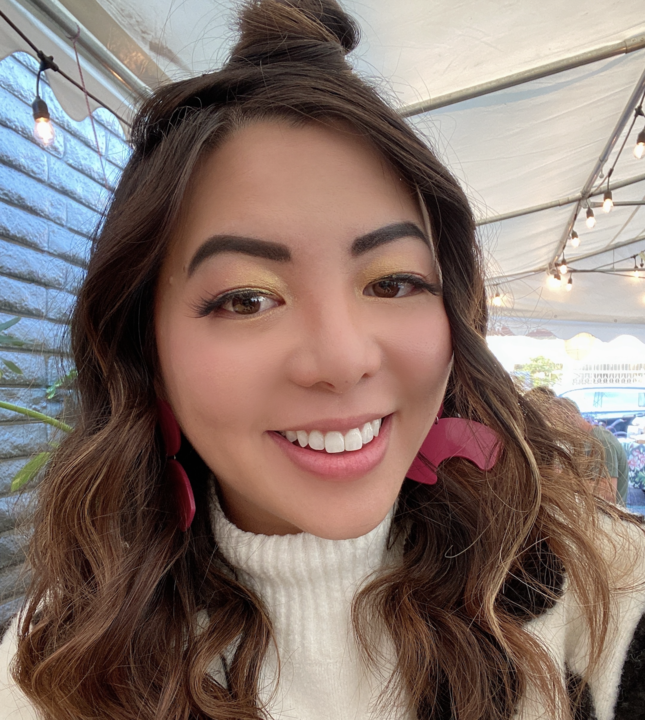
Cristina McComic
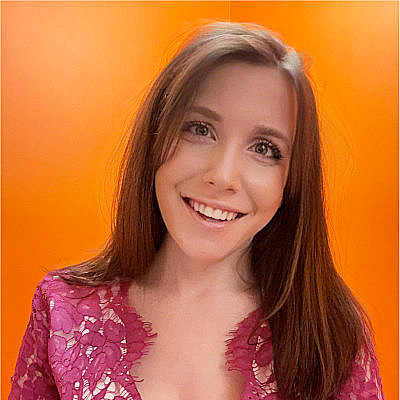
Sam Smitte
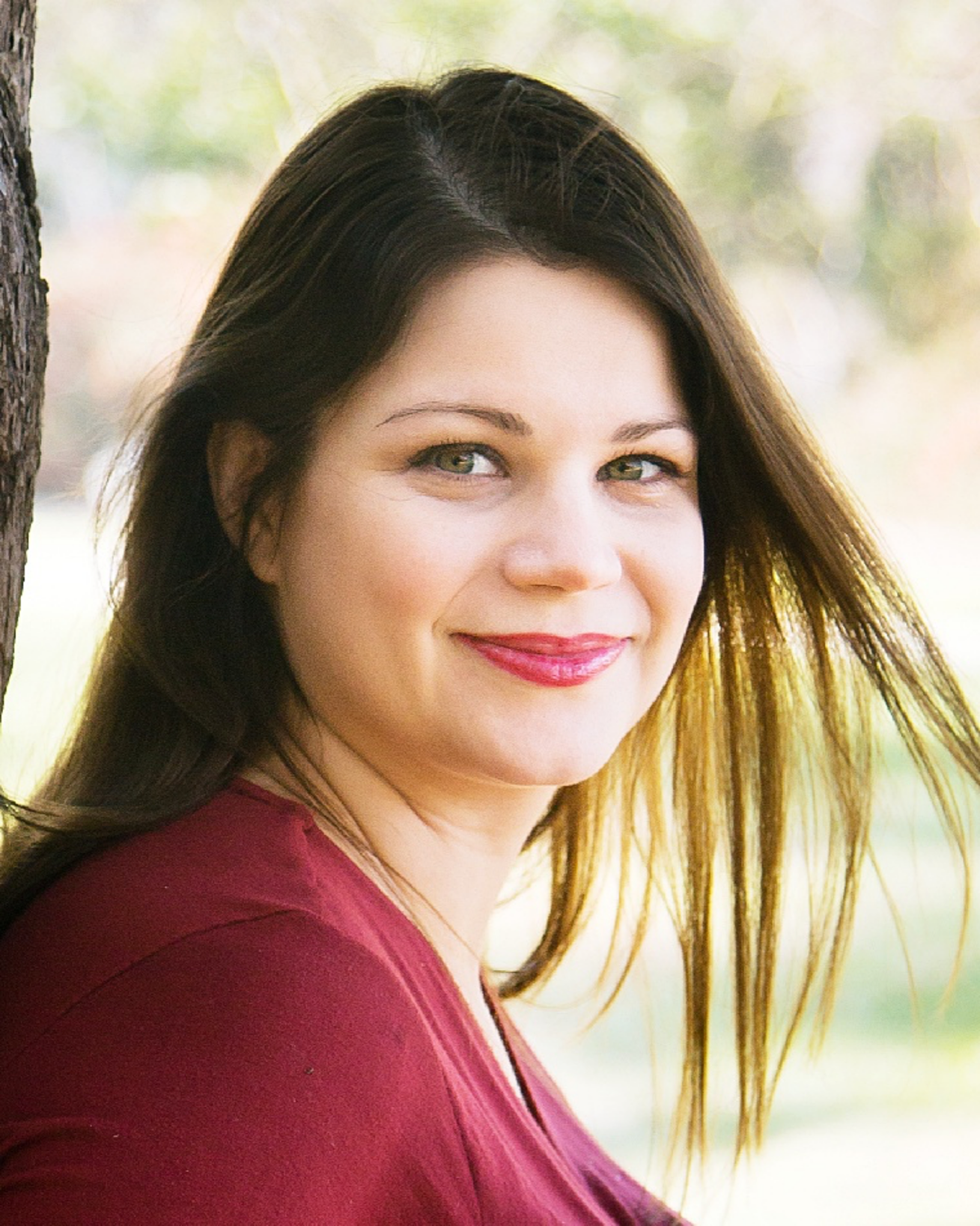
Amanda Downie
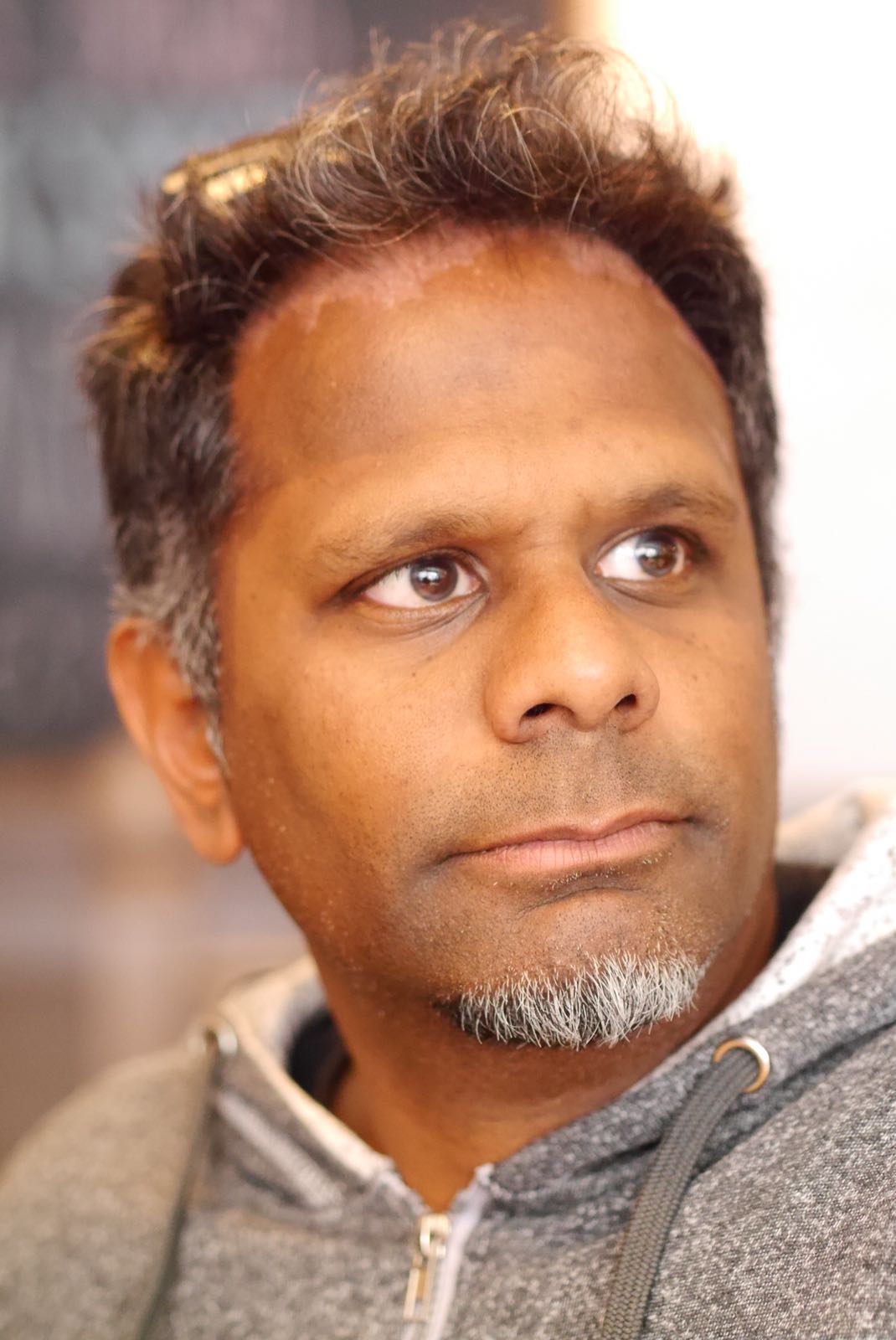
Daryl Pereira
Today's Guests
